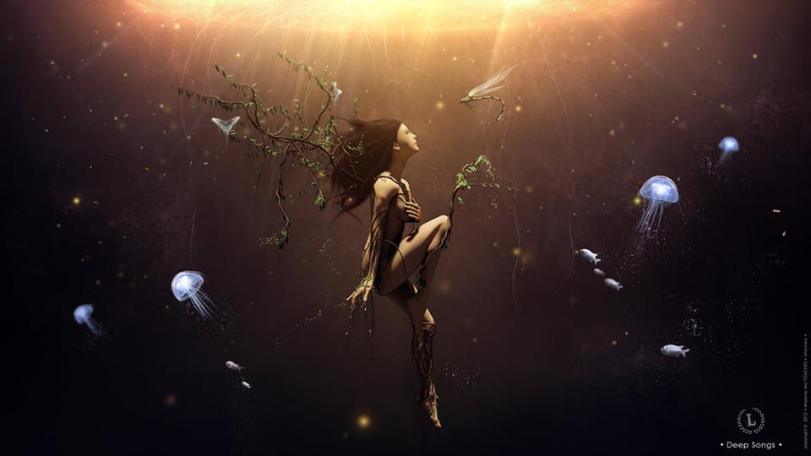Pantheism (Greek pan=Everything, theos=God) means regarding the universe and nature as divine, or equating the universe with God.
There is a close link between pantheism and modern paganism. Many pagans proclaim themselves to be pantheists. “I embrace Pantheism, acknowledging that the Divine is everywhere and in everything” says Selena Fox in I am a Pagan. “My worship takes the form of Divine communion with Nature.”
“The world is holy,” writes Margot Adler in Drawing down the Moon. “Nature is holy. The body is holy. Sexuality is holy. The mind is holy. The imagination is holy. You are holy….Thou art Goddess. Thou art God. Divinity is immanent in all Nature. It is as much within you as without.”
On its Web page, the pagan Church of All Worlds says it “embraces the theology of pantheism, as we experience what has been called `God,’ as an immanent quality inherently manifest in every living Being, from a single cell to an entire planet–and likely the universe itself.”
Finally, could there be a more beautiful expression of pantheism than Wiccan Doreen Valiente’s Charge of the Goddess:
I who am the beauty of the green earth,
and the white moon among the stars,
and the mystery of the waters,
call unto thy soul:
Arise, and come unto me.
For I am the soul of nature, who gives life to the universe.
From Me all things proceed,
and unto Me all things must return;
and before My face, beloved of gods and of men,
let thine innermost divine self be
enfolded in the rapture of the infinite.
Let My worship be within the heart that rejoices;
for behold, all acts of love and pleasure are My rituals.
Pantheists are not always pagans.
But pantheism and paganism have not always been so closely linked. The word pagan was already in use in the later Roman empire, to mean a non- Christian believer in the traditional pantheon of Rome.
The name pantheism was not used before the early eighteenth century – but the belief that nature and the universe are divine can be dated back to the Greek philosopher Heraklitus of Ephesus. “The cosmos is, and was, and always will be ever living fire,” he wrote. Heraklitus was no pagan: he had nothing but contempt for the worship of “statues” and for the Bacchic Mysteries of Dionysos.
The strongest school of pantheists were the Stoics, founded in the fourth century BC. They included Epictetus, Seneca and the Roman emperor Marcus Aurelius. Though many of them called their cosmic divinity Zeus, they thought of it as the totality of the material universe. They were not polytheists.
Modern pantheism has had many distinguished representatives, ranging from Spinoza through the Lakeland poets to Albert Einstein and Gene Roddenberry. These well-known pantheists, however, were not pagans either.
Paganism and pantheist “theology.”
So if ancient pagans were not pantheists, and ancient and many modern pantheists were not pagans, why do so many modern pagans say they are pantheists?
First of all, the times are a’changing. The rise of pantheistic religions is one of the key religious trends in the West. Not just pure pantheism, but a whole range of religions that see divinity out there in front of our noses, in nature and the night sky: Taoism, Zen Buddhism, paganism, deep ecology, Native American religions, or forms of Christianity verging on pantheism such as Creation Spirituality.
This pantheistic wave is fed by the destruction of nature and the earth proceeding all around us – the more we risk losing it, the more of us realize how deeply we value it. Many of us too are fed up with life-hating religions from ancient times that tell us that this earth is no more than a staging post on the road to heaven, and this body is just a cage for our eternal souls.
Love of nature, and feelings of a pervasive divinity in nature and in ourselves, are possibly the strongest reasons why many people are attracted to paganism in the first place. I would guess that for most people the need for a religion that affirms life, the body, sex, nature and the universe is more powerful than the need to have a variety of gods to worship. Pantheism is instinctive: it is every child’s reaction of wonder to the world around it. Polytheism comes later, if at all, and it is learned….”
Practice of scientific pantheism* by Paul Harrison.
Featured, Dec. 12, 1996.
This article was first published in Pagan Dawn, Summer 1997.
http://www.pantheism.net/paul/pagan.htm
Moro
Art title: ‘Deep Songs’ by artist: elreviae @ http://elreviae.deviantart.com/art/Deep-Songs-308926669

